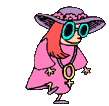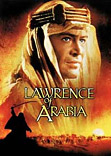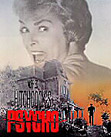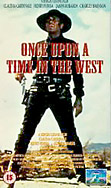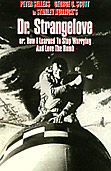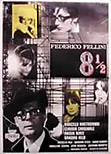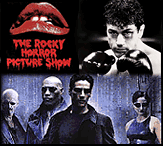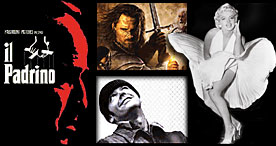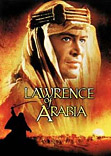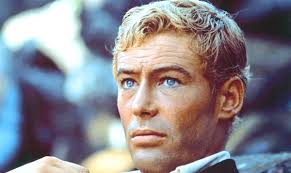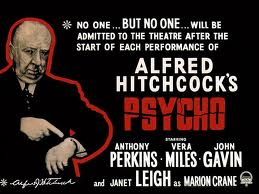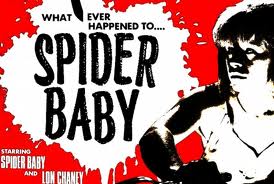The 10 greatest Stephen King horror novels according to Goodreads

Although dismissed by critics for much of his career—one New York Times review called him “a writer of fairly engaging and preposterous claptrap” — Stephen King is by any measure one of the greatest horror writers of all time. The author of fifty novels, nearly two hundred short stories and nine collections of short fiction, he is as productive as he is versatile. With so much fiction to choose from, it can be difficult to decide where to begin.
Happily, help is at hand thanks to the online book community Goodreads. As of July this book lovers’ heaven had an incredible 20 million members, the vast majority of whom spend huge amounts of time reading and reviewing. One author who understandably gets lots of attention is Stephen King. Here’s his ten greatest horror hits according to the Goodreads five star rating system.
1. The Stand – score: 4.3
The Stand might not be the first novel you think of when you contemplate horror, but this post-apocalyptic horror/fantasy, an expansion of King’s earlier short story “Night Surf”, is Goodreads’s top choice. First published in 1978 and later re-released in 1990 as The Stand: The Complete & Uncut Edition, it’s a genuine King masterpiece.

Goodreads top review says: “You know what’s really scary? Getting sick while you’re reading the first part of The Stand. Just try running a fever, going through a box of tissues and guzzling the better part of a bottle of Theraflu while Stephen King describes the grisly deaths of almost everyone on Earth from a superflu. On top of feeling like crap, you’ll be terrified. Bonus!”
2. It – score: 4.06
Published in 1986, It is a horror novel in every sense of the word. Moving back and forth between 1958 and 1985, the story tells of seven children in a small Maine town who discover the source of a series of horrifying murders. Having conquered the evil force once, they are summoned together 27 years later when the cycle begins again. The novel is famed for starring one of the scariest clowns in literature.

Goodreads top review says: “This is a brilliant novel, beautifully told in crisp, clear prose, with truly unforgettable characters and situations. It is the essence of good fiction; the truth inside the lie. King knows his way around the corners; and has that undefinable look in the eye, the dreamy look of a child.”
3. The Shining – score: 4.03
This 1977 classic follows Jack Torrance, a recovering alcoholic and writer, and his family, through a terrifying winter as they care for a deserted Colorado hotel whose history is anything but bucolic. The title was apparently inspired by the John Lennon song “Instant Karma!”, which contained the line “We all shine on…” Originally conceived as a five-act tragedy play, the story evolved into a five-act novel that also included many of King’s own personal demons. In 1980, Stanley Kubrick’s film version became an instant cult classic.

Goodreads top review says : “While reading “The Shining,” I revisited my kid fears– as if walking through a bell-bottomed-shaped portal into the shag carpet of the seventies. King evoked my vulnerability and reminded me of what it felt like to be a powerless child in a universe where everybody is stronger and more experienced than I.”
4. Misery – score. 3.99
Published in 1988, the novel focuses on Paul Sheldon, a writer famous for Victorian-era romance novels involving the character of Misery Chastain. After an automobile accident, Paul meets his biggest fan, Annie Wilkes. His nurse-and captor, she wants Paul to write his greatest work just for her, and she will do whatever it takes to make this happen. Of the inspiration behind Annie, King once said, “There was never any question. Annie was my drug problem, and she was my number-one fan. God, she never wanted to leave.”
Goodreads top review says: “I first read Misery when I was seventeen years old. I started it about eight o’clock that evening, and finished it about four in the morning. Heart pounding, bleary eyed and afraid to open my closet door lest Annie Wilkes was waiting there for me with an axe or chainsaw raised over her head.”
5. Salem’s Lot – score. 3.91
Published in 1975, Salem’s Lot follows a writer named Ben Mears as he returns to the town where he lived as a boy, Jerusalem’s Lot, or ‘Salem’s Lot for short. To his dismay he discovers that the residents are all becoming vampires. The title King originally chose for the book was Second Coming, but he later decided on Jerusalem’s Lot, because his wife, novelist Tabitha King, thought the original title sounded too much like a “bad sex story”. In 1987 he told Phil Konstantin in The Highway Patrolman magazine: “In a way it is my favorite story, mostly because of what it says about small towns. They are kind of a dying organism right now. The story seems sort of down home to me. I have a special cold spot in my heart for it!”

Goodreads top review says: “Vampire stories have been around for a long time – But leave it to Stephen King to turn the terror up a notch, add a whole new layer to it. How? In addition to showing us the monsters of the night, he also brings into the picture the monsters and the darkness that are already with us, that live in the deep dark recesses of everyone’s soul.”
6. Duma Key – score. 3.87
The newest book on the list, Duma Key was published in 2008 and reached #1 on the New York Times Bestseller List. In the book, a construction site accident takes Edgar Freemantle’s right arm and scrambles his memory and his mind, leaving him enraged as he begins his rehabilitation in a beach house on Duma Key in Florida.

Goodreads top review says: “Duma Key is not just a novel for the fans, but a cathartic response from King over his near-death accident in 1999; no doubt he relived his agonizing recovery while writing about Freemantle, and yet it is because of this firsthand experience, that Duma Key feels much more personal and empathetic.”
7. The Dead Zone – score. 3.83
Dedicated to his son Owen, the Dead Zone features Johnny Smith, a young boy who is injured in an accident and enters a coma for nearly five years. When he emerges, he can see horrifying secrets but cannot identify all the details in his “dead zone”, an area of his brain that suffered permanent damage as the result of his accident.

Goodreads review says: “I have been really surprised, especially as I read The Dead Zone, this isn’t more of a popular read, especially with King readers. Johnny Smith’s character and his ability were done very well. I really liked all of the characters, especially Johnny and his parents.”
8. Carrie – score 3.82
King’s first published novel, released in 1974, it revolves around “Carrie N. White”, a shy high school girl who uses her newly discovered telekinetic powers to exact revenge on those who tease her, causing one of the worst disasters in American history in the process. It is one of the most frequently banned books in US schools.

Goodreads review says: “This is one of those books where you’re just like, dude, how did you even come up with these thoughts? I mean, I think we take it all for granted now but honestly, this book is amazing. This novel was insane and fearless and obviously written by someone who had this story in him that needed to gush out like Carrie’s menstrual blood and crazy telekinetic angst. This is one of the books I think of when I get depressed about the idea of workshopped writing and the internal observing critic and all the rest of that limiting quality-control type stuff.”
9. Bag of Bones – score 3.79
Bag of Bones, published in 1998, focuses on an author who suffers severe writer’s block and delusions at an isolated lake house four years after the death of his wife. It’s a tale of grief and lost love’s enduring bonds, which went on to win the Bram Stoker Award for Best Novel.

Goodreads top review says “Don’t get me wrong, I love IT and The Stand and the Gunslinger septulogy, all the crazy outlandish horror and fantasy that is SK’s bread and butter. But I adore Bag of Bones and think it is one of his absolute best. It’s very intimate, very down to earth, with the supernatural downplayed.”
10. Pet Sematary – score – 3.77
Released in 1983, it was later made into a film of the same name. The original idea came in 1978 when King was teaching at the University of Maine at Orono, and his family rented a house on a busy road in Orrington. The road claimed the lives of a number of pets, and the neighborhood children created a pet cemetery in a field near the Kings’ home. King wrote the novel based on their experiences, but feeling he had gone too far with the subject matter of the book, it became the first novel he “put away”.

Goodreads top review says “The painful, hard thing about Stephen King’s writing is that so often, he takes something real, something that people can experience in the real world, and builds the supernatural stuff onto that. In The Shining, there’s Jack’s alcoholism; in The Talisman, there’s Jack/Jason’s mother’s cancer; The Stand plays on our fears of something, somewhere, in one of those labs, getting out of control; in Pet Sematary, it’s the death of a child. So much of the book is completely real and believable.”
Follow us on Facebook and Twitter for more mind-blowing coolness.


